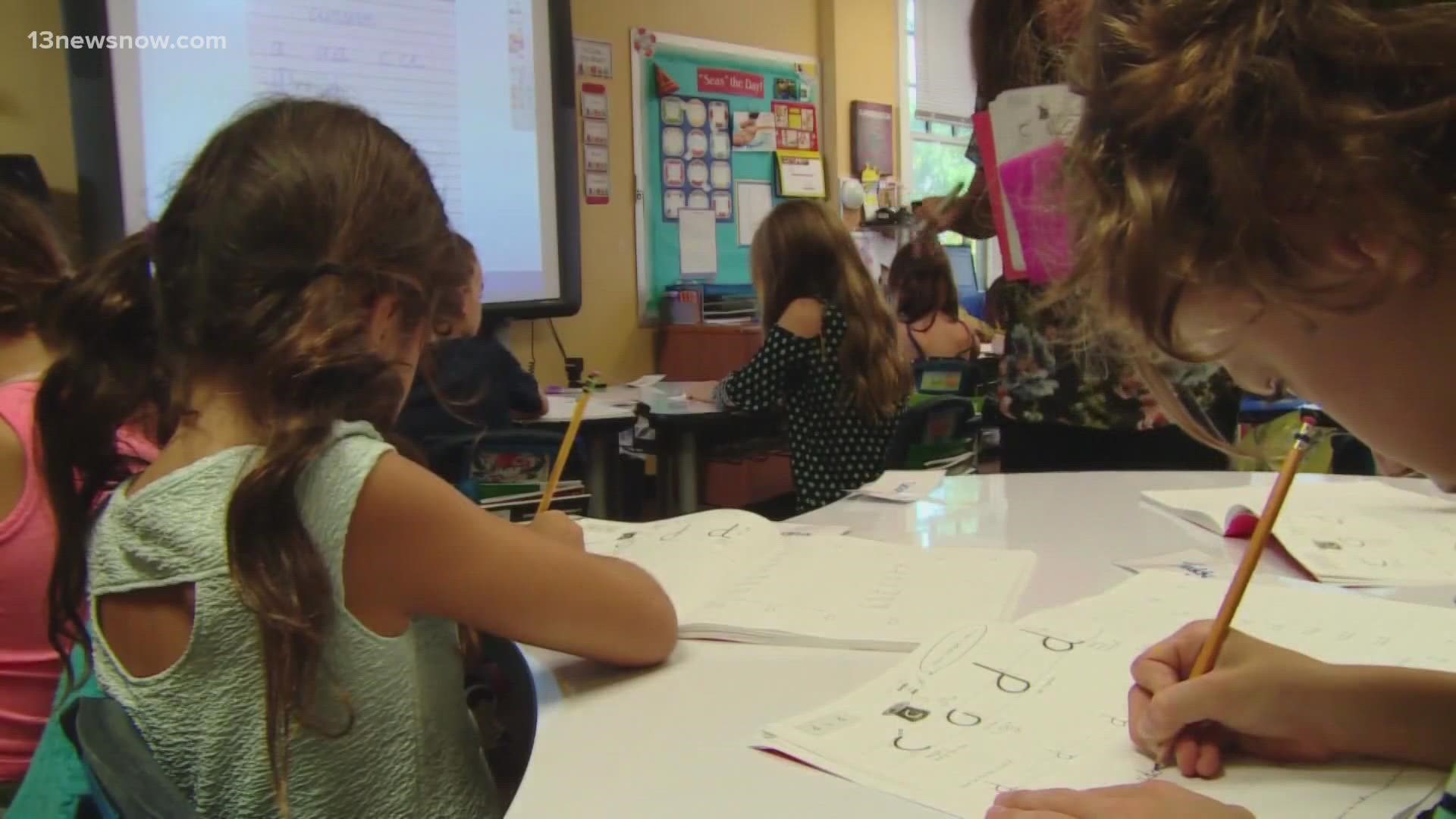NORFOLK, Va. — Virginia Gov. Glenn Youngkin is calling for action after a national report released Monday showed learning setbacks for children during the COVID-19 pandemic.
The 2022 National Assessment of Educational Progress (NAEP) — also known as the "nation's report card" — found that a majority of states saw scores decline for fourth and eighth graders in mathematics and reading between 2019 and 2022.
The test, which involved hundreds of thousands of fourth and eighth graders, was the first time it had been given since 2019 and is seen as a national indicator of how the pandemic impacted learning.
In Virginia, fourth-grade students fell below the national average in reading scores and are slightly above the national average in math. The state also saw drops in both eighth graders' reading and math scores.
In math, fourth graders landed an average score of 236, lower than the 2019 score of 247, while eighth graders landed a score of 279, lower than the 287 average in 2019.
In reading, fourth graders scored an average of 214, a drop from the 224 score in 2019, while eighth graders landed a score of 260, slightly lower than the 262 score in 2019.
Youngkin used the assessment results to accuse his predecessors of lowering education standards while announcing an overhaul in Virginia's education policies.
“Every parent in Virginia is now acutely aware that when my predecessors lowered educational standards, those lowered expectations were met," Youngkin wrote in a news release. "Virginia’s children bear the brunt of these misguided decisions. These actions were compounded by keeping children out of school for extended and unnecessary periods."
On Monday, Youngkin unveiled a plan that would address the problems with Virginia's education policies he described.
He directed the Virginia Board of Education to raise expectations for students by the time students take their Standards of Learning tests in the spring, and overhaul the state's school accreditation system.
He also called for a $30 million investment in grants for tutoring, funding for teacher recruitment and retention efforts and $2 billion in remaining pandemic relief funds to be used for learning recovery.
Another part of the plan is a partnership with free educational resources Khan Academy and Schoolhouse.world to provide math tutoring and homework support.
The Virginia Education Association (VEA), a group representing educators in the Commonwealth, said while the NAEP results are predictable, the Youngkin administration politicized them.
VEA President Dr. James J. Fedderman wrote in a statement that Youngkin's plan doesn't adequately address problems with education in Virginia.
“The commitment fails to offer a dime of new spending – it just points to existing spending – and it calls for completely insufficient approaches such as requesting tutor volunteers and pointing to free online learning video platforms," Fedderman said. "Furthermore, the administration calls for arbitrary changes to SOL cut scores and our school accreditation system without pointing to a shred of evidence that this would conceivably lead to any impacts on student outcomes."
Fedderman called on Youngkin to propose using the state's surplus to invest in K-12 services and programs in the next budget.
Fedderman said competitive pay, adequate support staff, after-school activities, teacher mentorship programs, small class sizes and modern school infrastructure would help address the challenges schools face.
The Associated Press contributed to this report.

